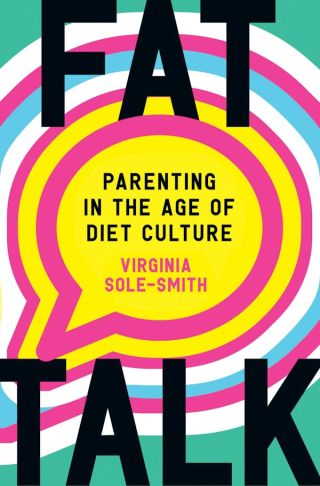Bias
How to Have the "Fat Talk" With Your Kids
A discussion with the author of "Fat Talk."
Posted April 26, 2023 Reviewed by Vanessa Lancaster
Key points
- “Fat talk” is a term created by body image researchers to describe self-disparaging remarks about one’s weight or body.
- "Fat talk" is associated with low body esteem, body dissatisfaction, body-related distortions, and perceived sociocultural pressure to be thin.
- Talking with kids about fat is an important part of normalizing body diversity.

“Fat talk” is a term created by body image researchers to describe self-disparaging remarks about one’s weight or body that result in conversations with a nearly-competitive edge. Especially if you identify as female, you are probably well-versed in the exchanges that often characterize fat talk. “I feel so fat, look at my X” may lead to a response of, “No, you look great, I am so fat, look at my Y.”
Past research suggests that fat talk is not adaptive; it has been associated with low body esteem, body dissatisfaction, body-related cognitive distortions, concerns about thinness, and perceived sociocultural pressure to be thin. In other words, fat talk doesn’t afford a cathartic experience but rather an opportunity for rumination about the parts of our bodies we dislike. But Virginia Sole-Smith is offering a reconceptualization of fat talk. In her new book, Fat Talk: Parenting in the Age of Diet Culture, she suggests the importance of talking about fat.
First, it’s important to note that “fat” is the term used both in her book and increasingly in the study and writing of body image and weight issues. “Obesity” and “overweight” are terms often used in the medical community, but research suggests that these terms are often viewed as disparaging; they medicalize or problematize the size of a person’s body, which is a central component of an individual’s identity, not a problem to “fix.” Talking about fat can normalize body diversity; some people are tall while some are short, some are thin while others are fat, and some have blue eyes while others have brown.
I asked Sole-Smith to describe her goal in talking about fat, especially as a parent. She indicated the importance of not just being tuned into our kids’ eating habits and bodies out of concern for their health or the possibility that they’ll develop an eating disorder. Sole-Smith told me, "You cannot raise kids with body autonomy and body acceptance if you’re still putting parameters around which bodies are worthy of respect and love. So we have to talk about fatness, and learn to name and identify anti-fat bias, so we can start to unlearn it and change the conversation."
Anti-fat bias (sometimes called weight bias or weight stigma[tization] in the research literature) is pervasive, and the consequences are serious. Not only do fat people internalize societal messages that they are inferior to their more slender peers in a number of ways (e.g., lazier), but they are on the receiving end of treatment comparable to racism and misogyny. Thus, having the “fat talk” with our kids is essential to raising sensitive, educated, empathetic, psychologically, and physically healthy humans.
Talking with our kids about fat isn’t something we mention just once as a lecture or one of those serious and inevitably awkward talks. Like the “sex talk,” Sole-Smith suggests this will go better if it is an ever-unfolding conversation that starts when our kids are young and ages with them in developmentally appropriate themes and language.
Sole-Smith reminds us of the endless opportunities present for a discussion about fat and anti-fat bias: "You can use examples of anti-fat bias in their favorite TV show (looking at you Peppa Pig) or book (ahem, Harry Potter) as a jumping off point. You can ask them how kids at school talk about bodies, and if they ever hear anyone use 'fat' as an insult, and then break down why that’s harmful."
The risks associated with not changing the sort of fat talk in our home from what it often is to enlightened, open, and accepting conversations are high. We want to protect our kids and other kids from weight-based teasing and childhood dieting – both significant predictors of the likelihood of developing an eating disorder. We want to change the cultural conversation about weight and clarify for our kids that weight, shape, height, and many of our other physical features are genetically influenced and affected by social determinants of health, neither of which we have much control over.

We also need to talk with ourselves, says Sole-Smith, “because the way we talk about our own bodies around our kids is arguably the conversation that will have the biggest and most lasting impact on them.” She stresses that “the best way to promote kids’ health (and yes, to reduce their future risk of diabetes, heart disease, and other mental and physical health problems) is to take the focus off their weight.”


